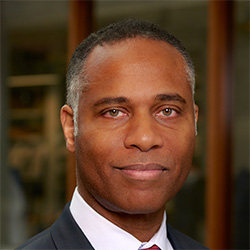T32 Grant for CARE One of First in Field of Regenerative Engineering
RE-Training is designed to educate the next generation of regenerative engineers
Directed by Northwestern Engineering’s Guillermo A. Ameer, the Center for Advanced Regenerative Engineering (CARE) was awarded a T32 grant by the National Institutes of Health (NIH).

Titled RE-Training, the project is one of the first two T32 grants awarded in the field of regenerative engineering, along with a separate award to researchers at the University of Connecticut. The first cohort comprises four PhD students in the biomedical engineering department, with the deadline to apply for the next cohort likely coming in May.
Ameer is the Daniel Hale Williams Professor of Biomedical Engineering in the McCormick School of Engineering and a professor of surgery in Northwestern’s Feinberg School of Medicine.
RE-Training is designed to educate the next generation of regenerative engineers using a three-member mentor team and relevant exposure to both clinical and industrial experiences through CARE’s partners. The mentor team must include a practicing surgeon or physician, a life sciences expert, and an engineer. The team-based approach for training pre-doctoral students that includes academic, clinical, and industrial mentoring experiences makes its program unique among T32s.
The T32 is not the only recent award for CARE.
The project “Telemetric Regenerative Bandage for Accelerating Wound Healing” was granted a Research Project (R01) grant worth $3.8 million from the NIH: National Institute of Diabetes, Digestive and Kidney Diseases. Led by Ameer and John Rogers, Louis Simpson and Kimberly Querrey Professor of Materials Science and Engineering, Biomedical Engineering, and Neurological Surgery, the project describes the development of a shape-conforming antioxidant dressing that upon exposure to body temperature transforms into a vasculoinductive, dermoconductive, and dermoinductive scaffold that promotes new tissue formation in diabetic wounds. It also includes developing a wireless wound feedback system that involves tissue conforming temperature and pH microsensors to monitor potential bacterial infection and/or lack of healing to improve patient outcome.
Also, “Multi-Tissue Craniofacial Engineering using 3D-BMP9-Notch-Synergized Graphene Citrate Composite Scaffolds” received an R01 grant for $1.5 million at Northwestern. Russell Reid, professor at the University of Chicago, is the primary investigator, and Ameer along with McCormick School of Engineering mechanical engineering professor Cheng Sun has a subproject.